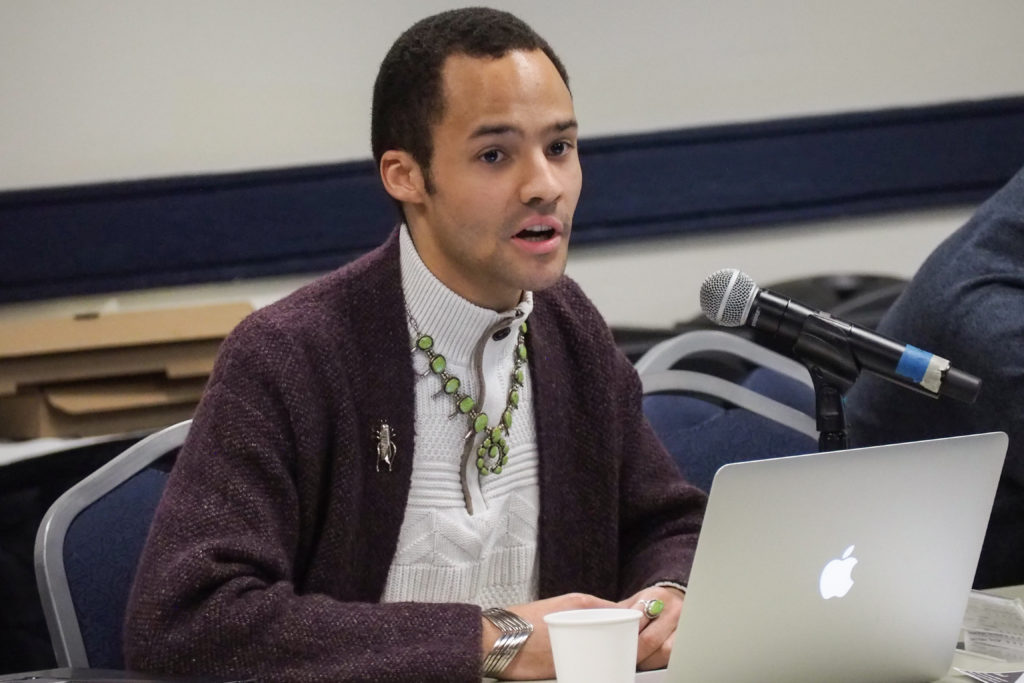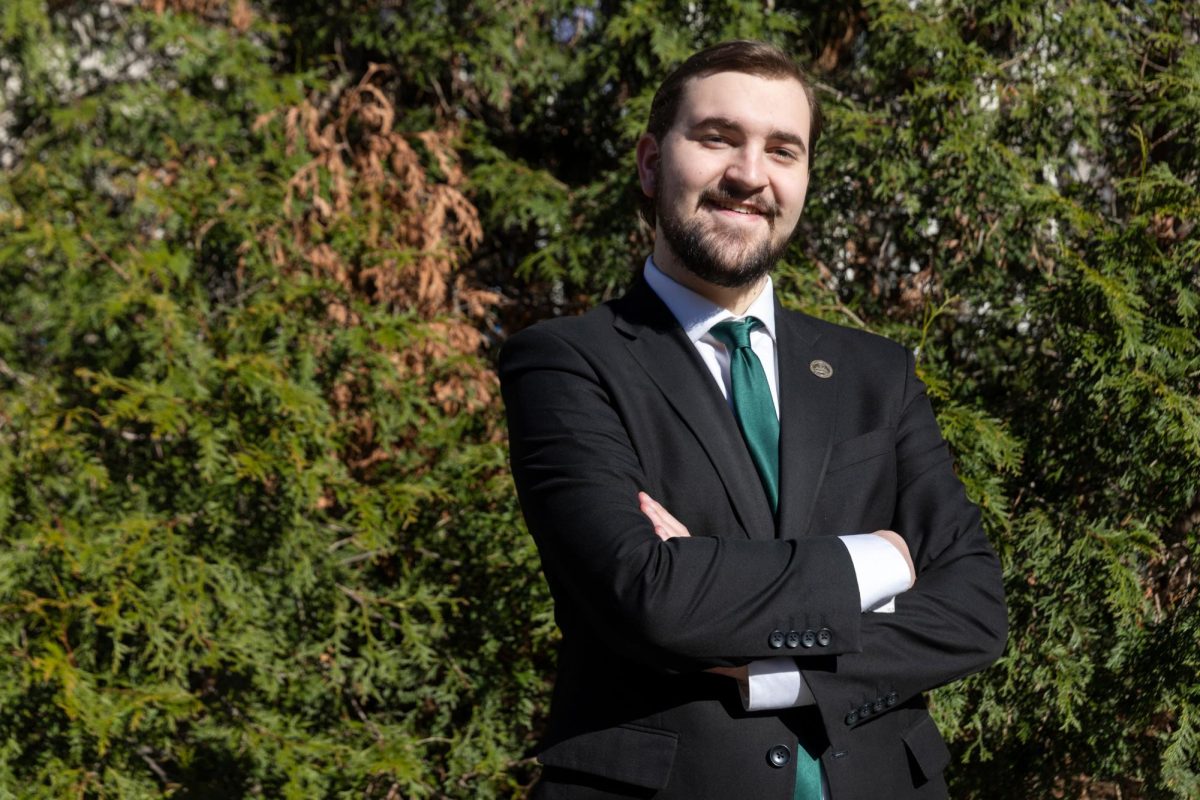The Student Association Senate passed a resolution Monday calling on the University to distance itself from the fossil fuel industry.
More than 20 senators cosponsored the Sunrise Movement Support Act, which passed with two abstentions and one vote against, backing a letter that Sunrise GW – a student-led environmental activism group formerly known as Fossil Free GW – penned in December. The resolution urges GW to cut ties with the Regulatory Studies Center, a research hub funded by fossil fuel companies, and publicly disclose its funding and divest GW’s endowment from the fossil fuel industry.
The University does not openly state specifics about its investment profile, including if funds have been invested in fossil fuel companies.
SA Sen. Alice Chang, ESIA-U – a resolution co-sponsor and a Hatchet reporter – said the resolution is way for the senate to push for the University to change its practices and set an example for other institutions to follow.
“We are changing societal and cultural norms by passing this, and therefore we are setting expectations for future generations and universities around the world to follow our example,” she said.
Sunrise GW’s letter cites a June 2019 report from Public Citizen – a progressive consumer rights advocacy group that has criticized the Regulatory Studies Center for alleged right-wing bias – that details donations the center has received from fossil fuel companies like ExxonMobil.
Officials stated in 2016 that divestment is not part of the University’s investment strategy – though they would work to maintain a sustainable investment portfolio – and told The Hatchet earlier this month that officials had not yet received Sunrise’s letter.
The senate unanimously voted in 2016 in favor of divesting the University’s holdings in the fossil fuel industry, and 70 percent of students indicated support for divestment in a 2015 referendum.
SA Sen. Jake Corsi, CCAS-G, urged the senate to table the resolution until senators could present more “precise” legislation that would provide a framework for how the University should address climate change concerns. He said the legislation does not include specific action items, which would give University President Thomas LeBlanc the “perfect opportunity” to ignore the senate’s calls.
“I understand the desire to virtue signal and to be on “the right side of history,” but I think you guys are shooting yourselves in the foot by just all rallying behind this poorly written piece of legislation,” he said.
The senate also unanimously passed a resolution asking officials to exempt students with an outstanding balance of $1,000 or less from paying GW a one-time $150 late payment fee and a monthly interest charge. Students who do not pay tuition in full by the first day of the semester or who don’t pay all required monthly plan payments by the agreed upon due date currently incur late fees, according to the Student Account Office’s webpage.
The legislation also presses officials in the Office of Student Financial Assistance to release a progress report for the Financial Aid Student Advisory Council, a group that formed last spring after officials overhauled the financial office to include more student feedback.
SA Sen. Quentin McHoes, ESIA-U and a sponsor of the resolution, officials have not been transparent about the council’s work over the past year.
“We have yet to see anything truly flushed out in that area, meaning the students again are being hurt by some things that need to be changed,” McHoes said.
He said the current procedure for handling outstanding charges does not “truly serve” students who depend on financial aid from the University. McHoes said he has asked other students and officials like Cissy Petty, the vice president for student affairs and dean of students, for assistance navigating his financial situation.
“Many students should not have to rely on an administrative contact for help,” he said. “Many students should not have to rely on systems within the University regarding financial aid that do not truly serve them.”
Senators also voted to allow Class Council and Program Board to conduct internal elections, which the Joint Elections Commission – the body that oversees SA elections – previously handled.
Also on Monday, senators passed a bill to go into effect next academic year mandating that the SA president and executive vice president hold at least three joint meetings each semester for any interested executive board members of student organizations.








